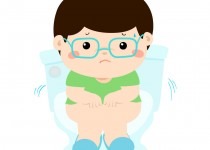 Ali Griffin, APRN
Ali Griffin, APRN
Nurse Practitioner, Weiss Pediatric Care
We have all been there at some point, or…sorry, you probably will be in the future! You are at home, (at least hopefully at home and not in the Target bathroom or in line for a ride at Disney) with a child who is having the dreaded “diarrhea”. First of all, let’s clarify what exactly the term diarrhea means.
There are different levels of diarrhea: Mild would be 2-5 WATERY stools in a day, Moderate would be 6-9 times per day, and Severe would be 10 plus. “Loose” or “runny” stools are not diarrhea. In infants, it can be hard to tell the difference, but if the stool contains blood, mucus, or is unusually foul smelling, it is suspicious.
If your child seems to have diarrhea, you need to watch for symptoms of dehydration (losing too much fluid). These symptoms include less urination, dry mouth, crying without making tears, weight loss, sunken eyes, and lethargy (not able to wake up and interact appropriately). If your child is still active and alert, playing, and happy, then they are not dehydrated. If your child isn’t vomiting then continue to feed them, however, you will want to stick to a bland diet. Don’t use “anti-diarrhea” medications unless your child’s provider specifically instructs you to.
What can cause this sudden diarrhea? The most common cause is a virus that infects the intestines, and less common can be bacteria, food poisoning, parasites, or traveler’s diarrhea. Most of the time, these illnesses can pass without the need for treatment. If the diarrhea happens on more occasions, it could also be toddler’s diarrhea, cow’s milk allergy (in babies), or lactose intolerance (usually genetic and starting around age 4 or 5).
Toddler’s diarrhea can affect kiddos from 6 months to 5 years old. This typically causes 3-10 LOOSE stools per day. These kids act fine and have a normal appetite and gain weight as they should. Toddler’s diarrhea doesn’t cause a fever or belly pain, which could be signs of infectious diarrhea. There isn’t an exact known cause for Toddler’s diarrhea, but children get better on their own usually by school age. If you are suspicious your child may have Toddler’s diarrhea, avoid sweetened beverages such as juice and sports drinks since sweeteners like sorbitol and high-fructose corn syrup can be laxatives. Give your child the normal amount of milk and water for their age.
Most importantly, to try to avoid needing this information altogether, don’t forget GOOD HANDWASHING….which goes out the window when your young child drops their free cookie on the floor in Publix and shoves it back in their mouth faster than greased lightning…but hey, we can’t win them all!
For additional information, visit the American Academy of Pediatric website or see the “Is Your Child Sick” tab on our website.

 Ali Griffin, APRN
Ali Griffin, APRN